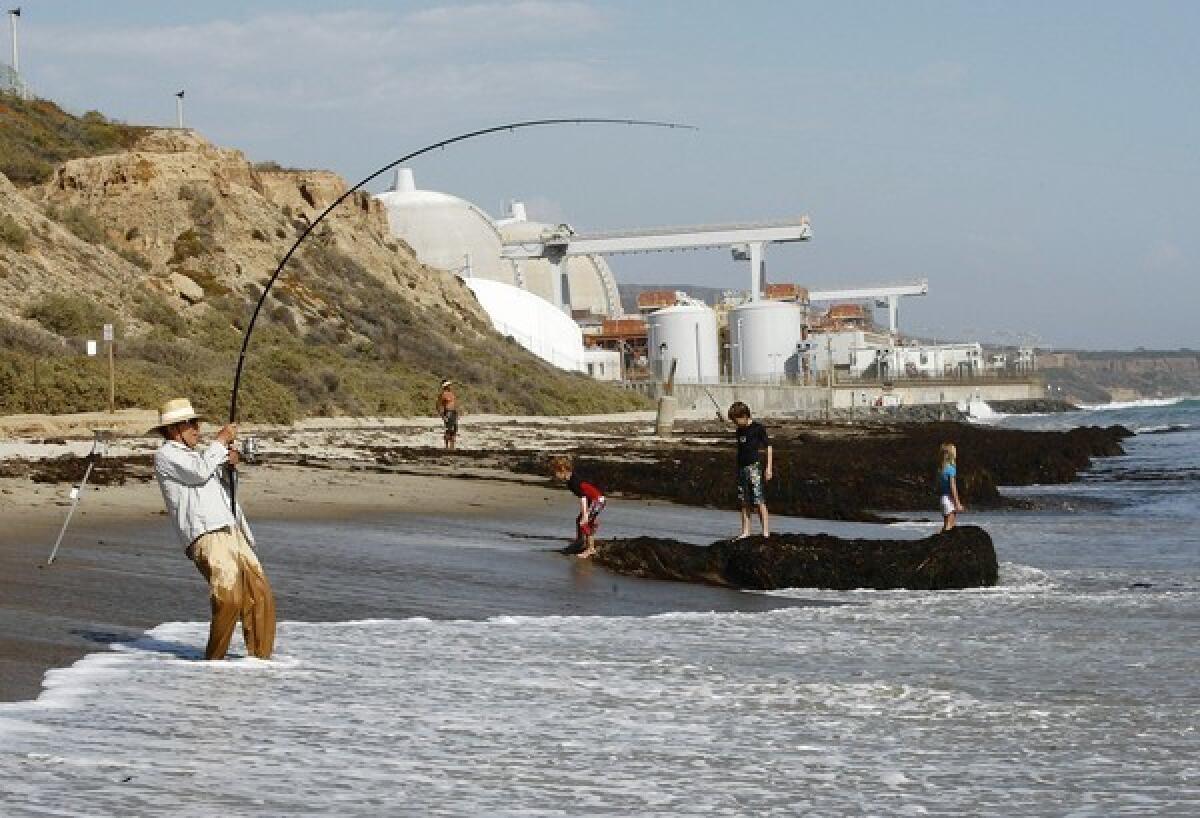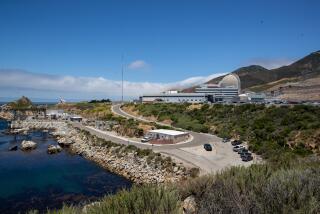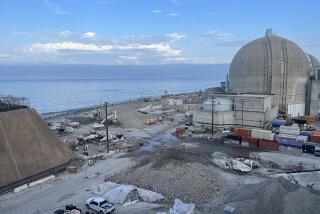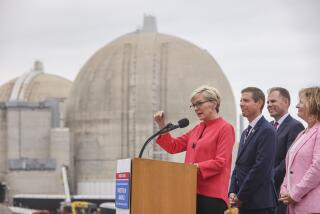Regulators ask Edison questions about San Onofre restart plan

Federal regulators have sent Southern California Edison a new set of detailed questions that will help them evaluate the feasibility of a partial restart of the shuttered San Onofre nuclear plant.
The plant, which once supplied enough power for about 1.4 million homes, has been out of service for close to a year because of unusual wear on steam generator tubes that carry radioactive water.
Edison has requested permission to restart one of two reactor units at the plant and run it at 70% capacity for five months. The company provided analysis to show that the lower power level would alleviate the conditions that caused the tubes to vibrate excessively and knock against support structures and adjacent tubes.
In questions submitted Wednesday, the U.S. Nuclear Regulatory Commission asked Edison to provide additional analysis showing what the extent of the tube-to-tube wear would be and whether the plant would meet standards for tube integrity if the unit were operated at 100% of its licensed power.
Activists opposed to the plant’s restart expressed hope that if Edison can’t show that the plant could operate safely at 100% power, it might be required to apply for a license amendment and go through a courtroom-like hearing to operate at reduced power — something they have been pushing for.
NRC spokesman Victor Dricks declined to comment on that issue.
Edison spokeswoman Jennifer Manfre said the company would be answering all of the NRC’s questions as part of a thorough review process. She declined to comment on how Edison’s response might affect that process, but said the company is “confident that Unit 2 at San Onofre can be operated safely and within industry norms.”
Dricks said he did not anticipate that the latest round of NRC questions would extend the timetable for reviewing the restart plan. The NRC has said tentatively that it could reach a decision on the restart proposal in March.
The questions submitted Wednesday addressed some other issues discussed at a public meeting between Edison representatives and NRC staff earlier this month. NRC senior materials engineer Emmett Murphy questioned whether tubes that have been plugged to take them out of service — either because of wear or as a precaution — could eventually pose problems.
Some of the tubes, Murphy pointed out, “are adjacent to a retainer bar that vibrates, and this vibration was the cause of wear in some tubes.” In the long term, he said, the plugged tubes could wear through and break, damaging other tubes.
The NRC also queried Edison on details of an upgraded loose parts monitoring system the company proposed to install.
Edison has not proposed a restart plan for the plant’s second reactor, where the tube damage was more extensive.
But Mitsubishi Heavy Industries, the manufacturer of the steam generators, has been testing mock-ups of redesigned support structures that could be part of a longer term repair plan for the plant. Inadequate support structures in the steam generators have been blamed in part for the wear problems.
The NRC last month cited some procedural issues with the testing. A Mitsubishi spokesman said that the issues had to do with documentation and that the test results were accurate.
More to Read
Sign up for Essential California
The most important California stories and recommendations in your inbox every morning.
You may occasionally receive promotional content from the Los Angeles Times.











